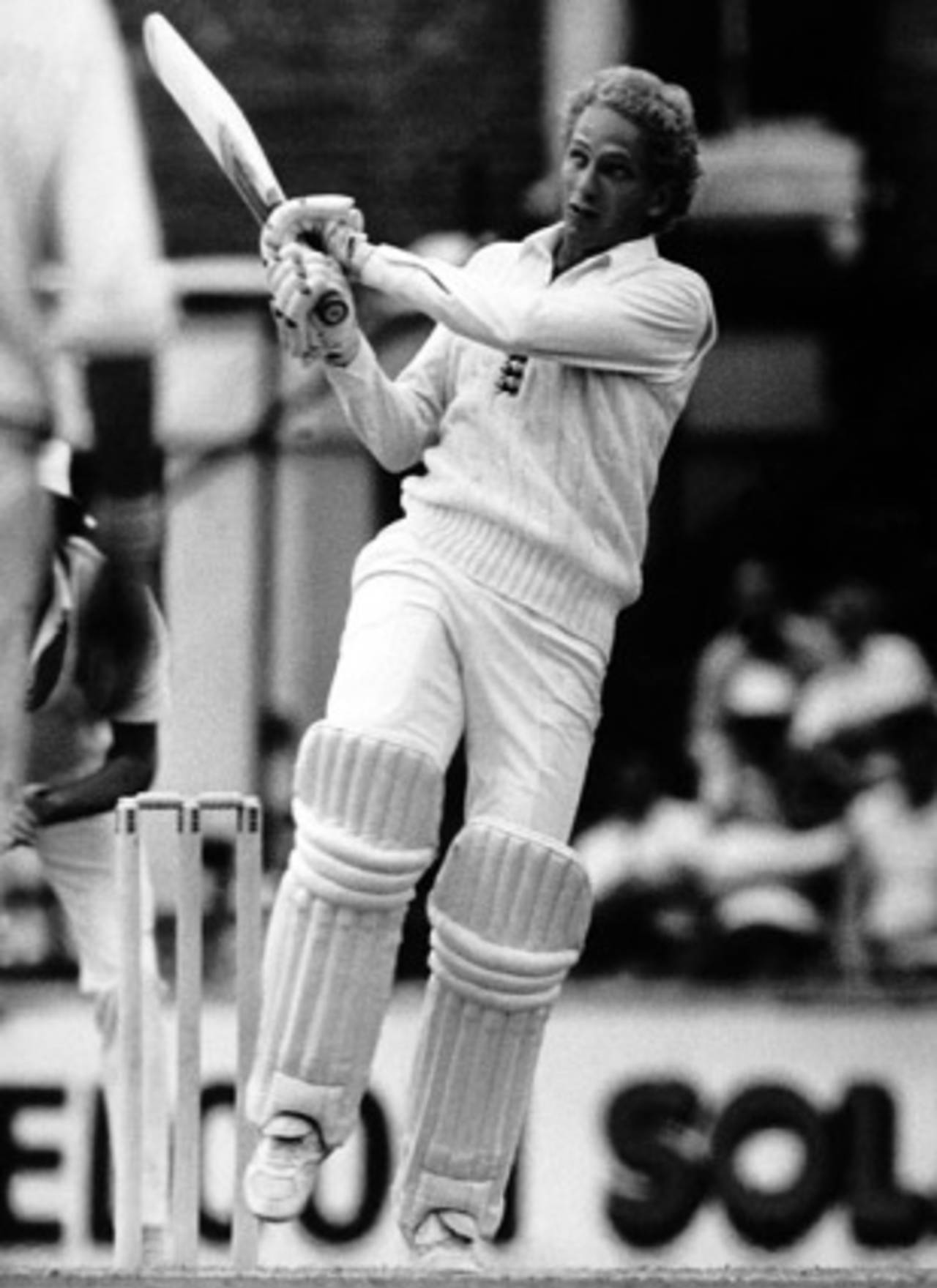Elaborate Fictions continued: A cricketing chain novel
Writing in chain-novel format can be an exhilarating and infuriating experience; each writer supplies inspiration and sand-in-the-wheels for his partners
Samir Chopra
25-Feb-2013

Plot development of the chain-written fictitious Test between West Indies and England was quite unpredictable • PA Photos
In my last post, I had recounted the tale of my attempt to bring an imaginary Test to life by writing a report of its action. That attempt failed; as is often the case while undertaking writing projects these days, I lacked the attention span and the discipline to pull it off. But, as I have often found with my current writing projects, the key was to find a good co-author.
In the eighth grade, my best friend was a lad from Kerala, 'VC', recently returned from a stint living in England (thanks to his father's work assignments). He was cricket obsessed, so was I. We loved West Indies. Our tastes only diverged when it came to England (he liked seeing them win, I didn't). I told him about my attempt to write a match report of an imaginary Test and suggested we write it as a chain novel: take turns writing reports of sessions, with each of us free to develop the Test match action as we wanted, based on what had gone before.
Who would be the combatants in this Test match? I preferred Australia and West Indies, VC wanted England and West Indies. I didn't mind too much; the summer of 1979 had made us both Ian Botham and David Gower fans. So England against West Indies it was, playing in Bridgetown.
Writing in chain-novel format can be an exhilarating and infuriating experience; each writer supplies inspiration and sand-in-the-wheels for his partners. In the cricketing context, this meant that while I could rest after writing a session and then pick up on the action developed by my co-author, plot development could be quite unpredictable. There was no point in having an endpoint in mind for the game, and no particular fantasy could be sustained for too long if the fates conspired against it. I might want my favourite batsman to score a century but my partner could very easily dismiss him first ball. Theoretically, I could end the entire Test match in a session, but that seemed silly.
Our rules were simple: we would toss to see who wrote first, and then hand off the match report after each session. We would not talk about what our plans were for each session, and not discuss them in any way to collude on an outcome.
We got to work. VC won the 'toss' and wrote the pre-lunch session report for the first day, making West Indies bat. In retrospect, I wish I had won the toss; fifteen sessions meant VC would write the last session's report and be in charge of the game's outcome. Things went well. Writing each session's action didn't take too long and came quite easily to us. We wrote, quite naturally, in our 'school diary' (Indian kids will know what these were). A typical session's report took up anywhere from two to four pages, depending on how passionate you were in describing the action (and on how many twists and turns in the tale you wanted to introduce).
Soon after we started though, our writing efforts were interrupted. I was changing schools and heading off to Darjeeling for boarding school. My departure from Delhi was abrupt, so I had little time to set my affairs in order. But VC and I did agree that the Test match writing would continue by mail. We had only got to the third day's action and much work remained to be done.
So a new epistolary relationship began, one centred on the writing of this chain-report. I wrote my reports on sheets of notebook paper, tore them off and posted them to Delhi. VC wrote his reports and then mailed them back.
I had a sneaky feeling VC wanted England to win and he wanted the victory fashioned by Gower, scoring a majestic century on the last day of the Test. I could have stopped him, but I didn't. I could have had Marshall take Gower out, send his middle-stump flying and then quickly wrapped up the tail.
But I didn't. I handed off the post-tea session on the fifth day to VC and let him take England to victory. It was improbable, but it didn't really matter. VC was my friend and he had let me indulge in this escapade. I knew if I had been in charge of the final session, West Indies would have won. And we always had an unspoken understanding that the game would end in the last session and not before. So even if I had taken nine English wickets by tea, VC could have still made them win.
Sadly, I do not know where the Test report is - lost, consigned to a trash-heap somewhere or, more probably, misplaced in a housing move. I'm sure I would be embarrassed by its writing now. But it would still remind me of that summer of 1980, when two schoolboys decided they would take a break from the 'reality-based community' that surrounded them and concentrate on some serious day-dreaming instead.
Samir Chopra lives in Brooklyn and teaches Philosophy at the City University of New York. He tweets here